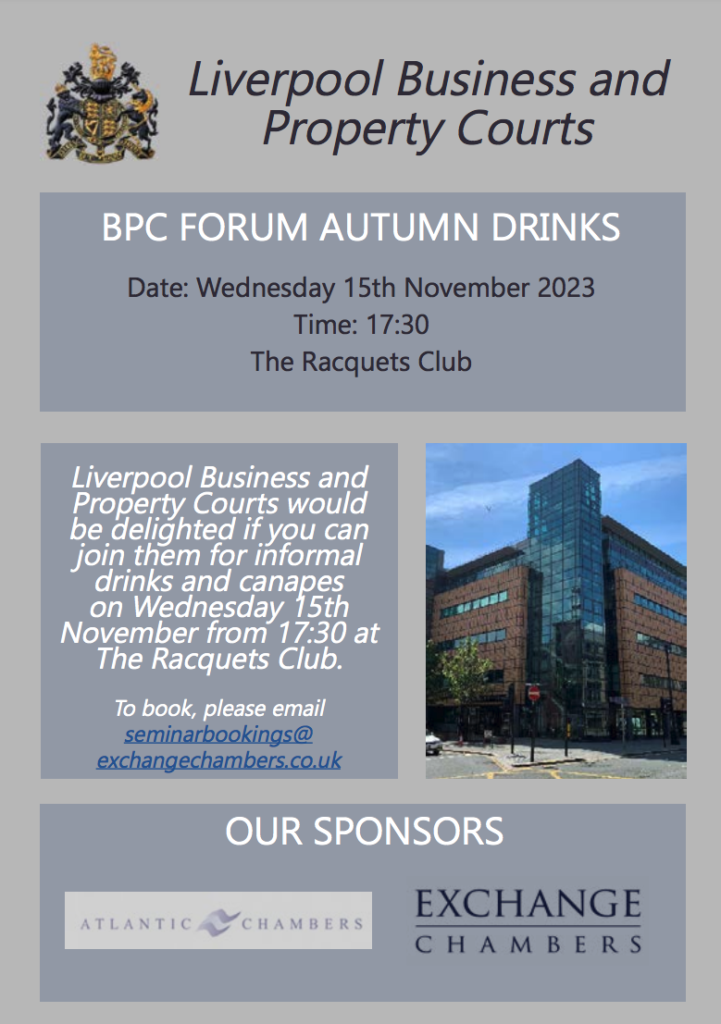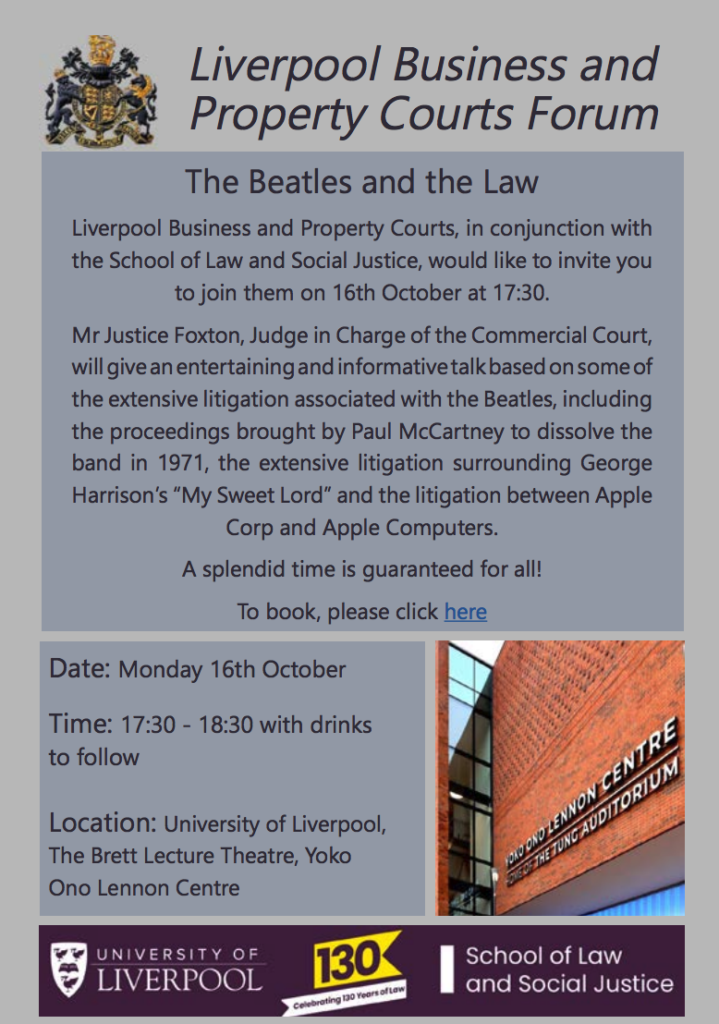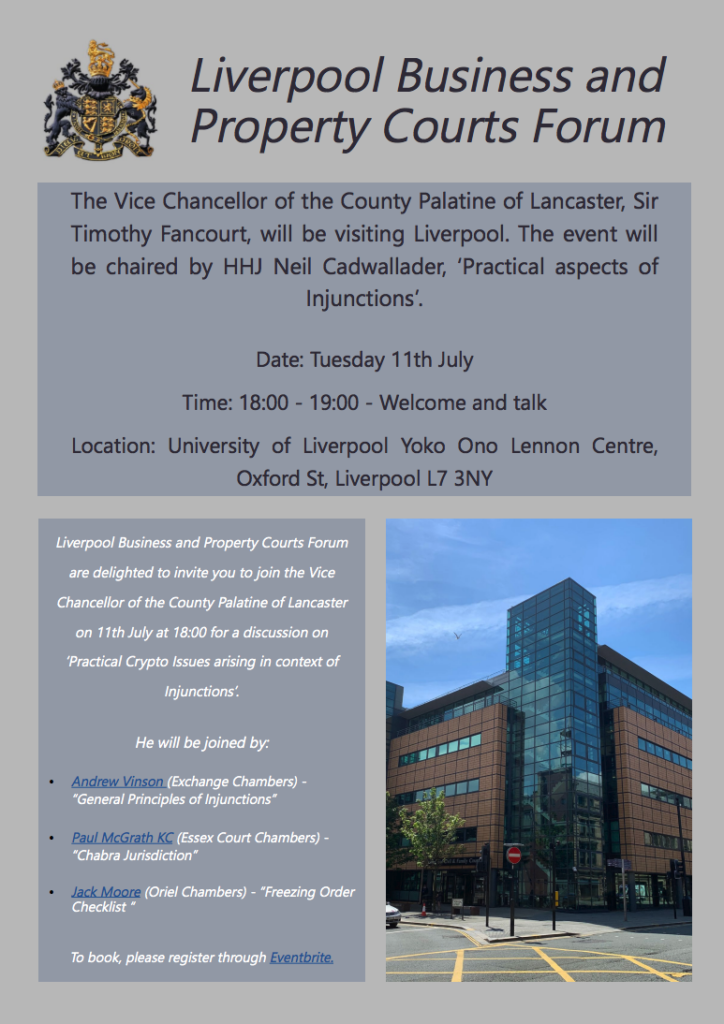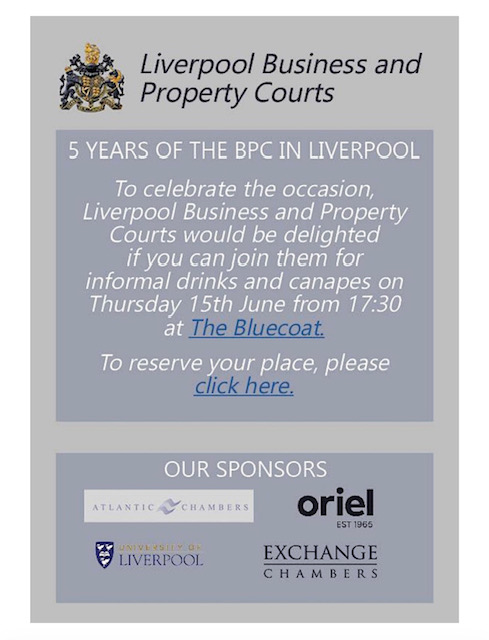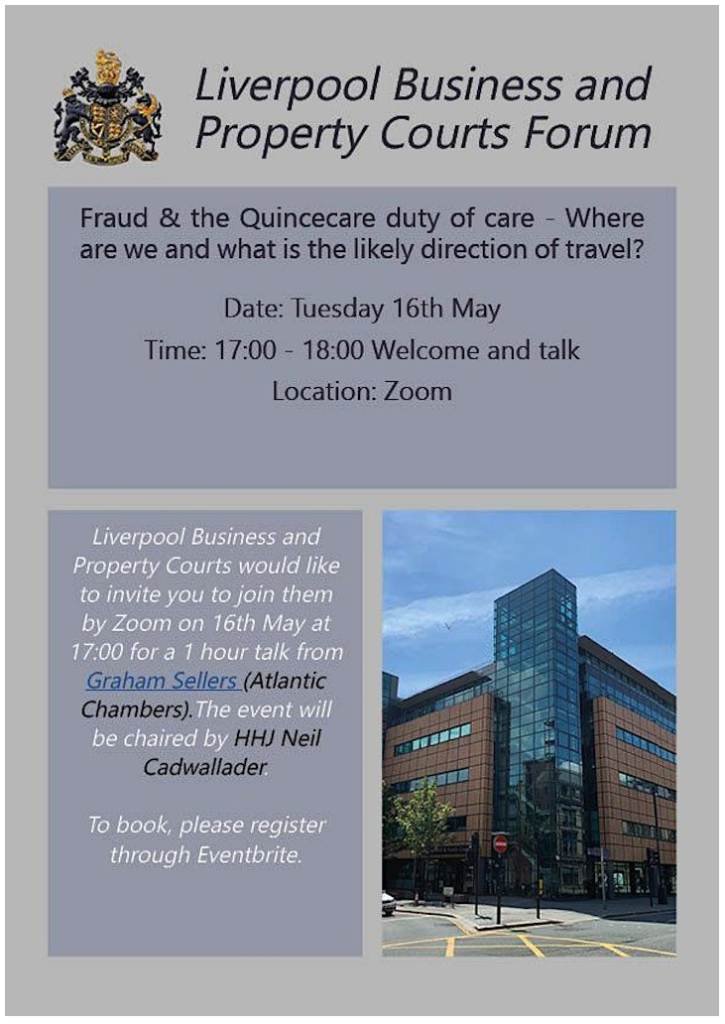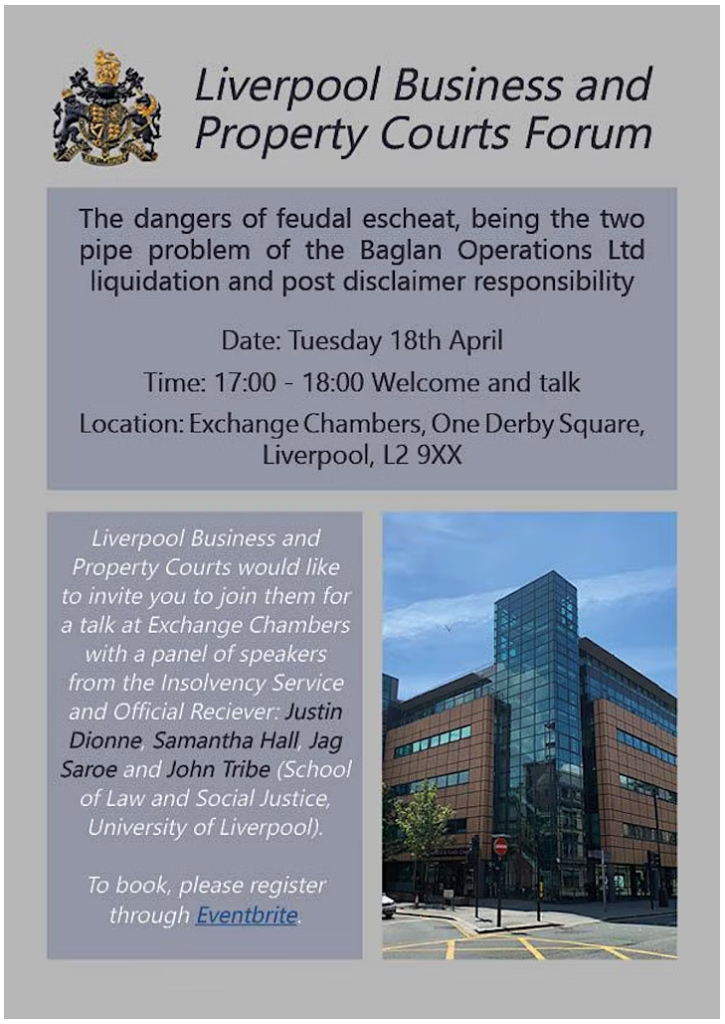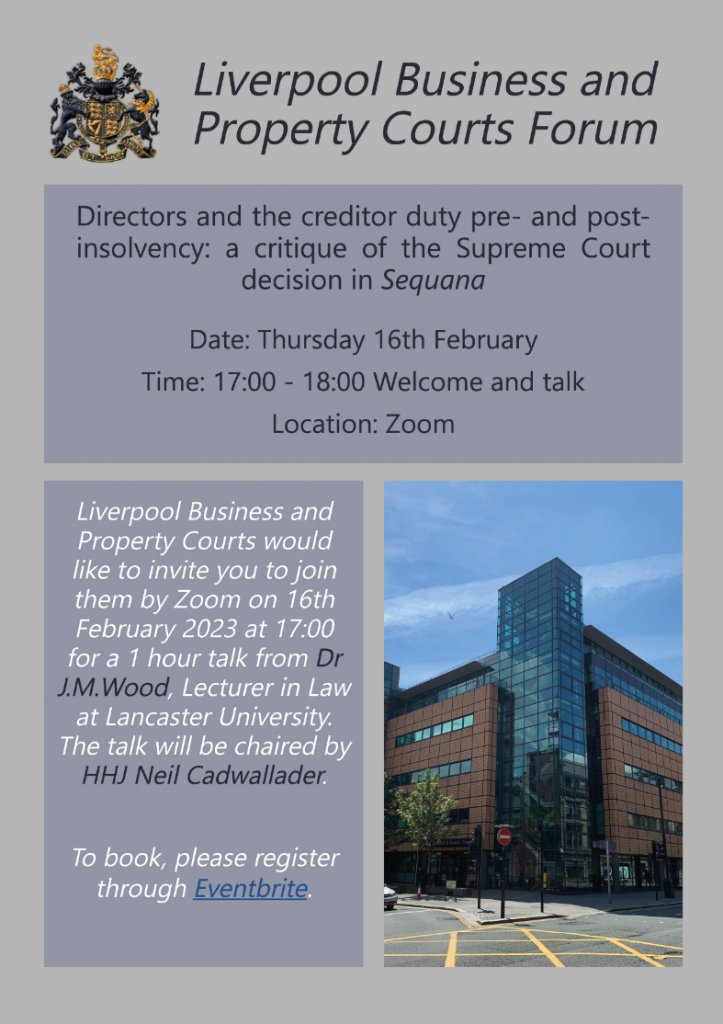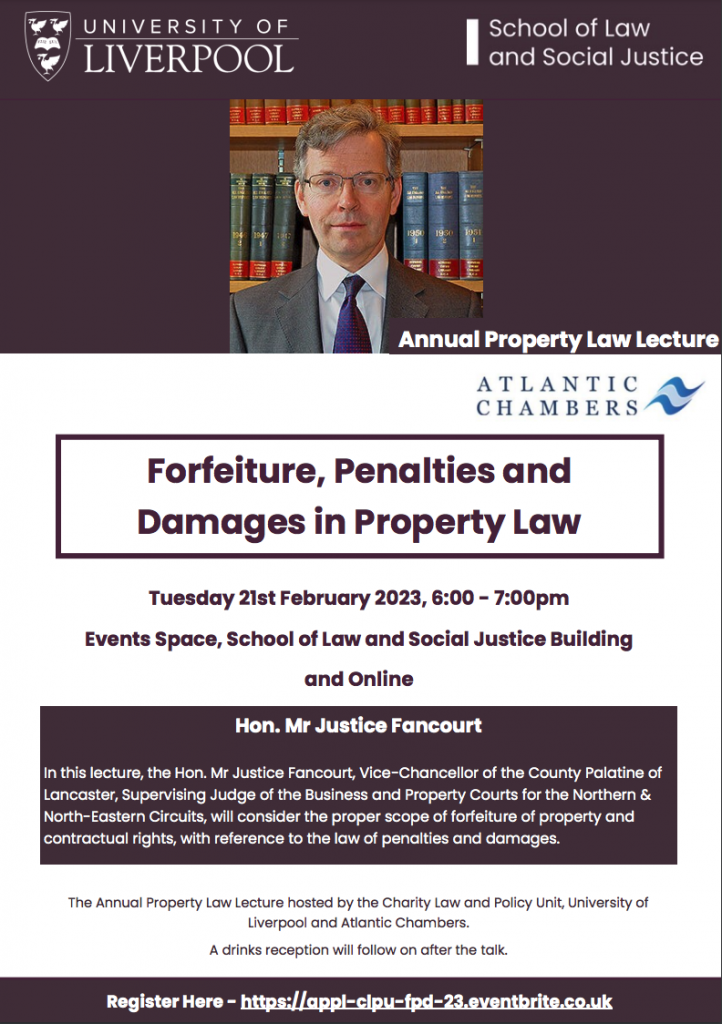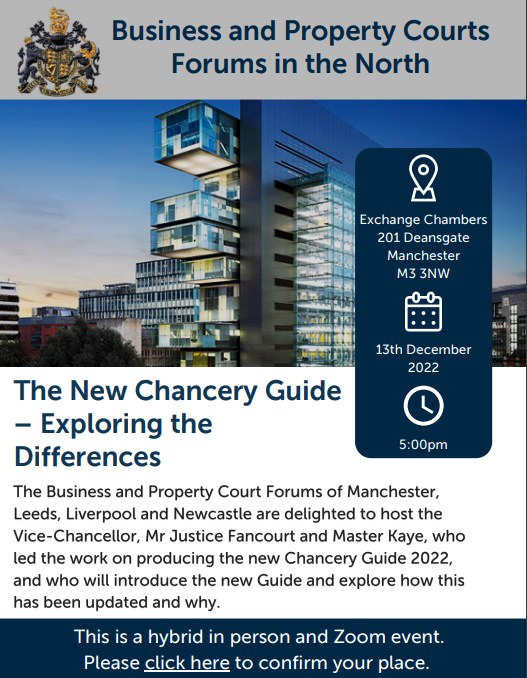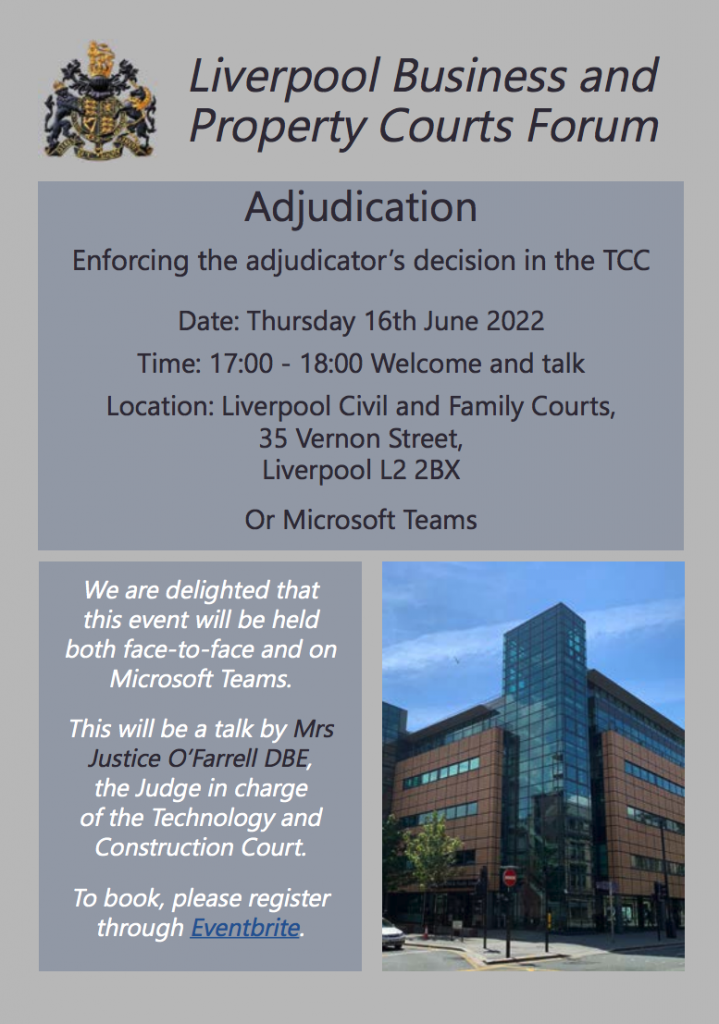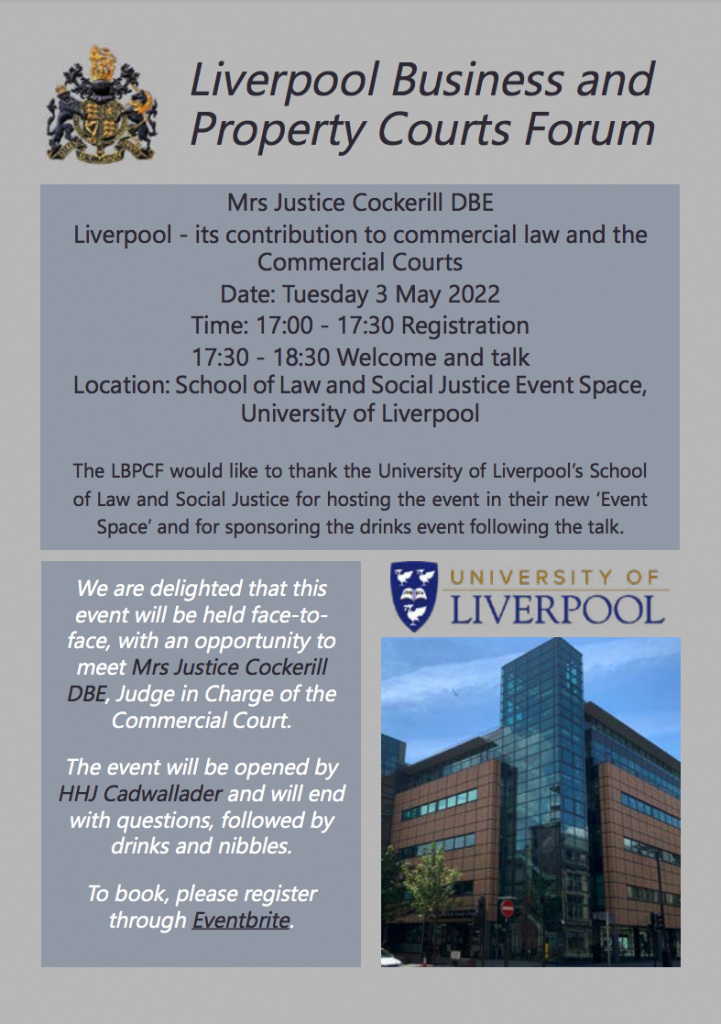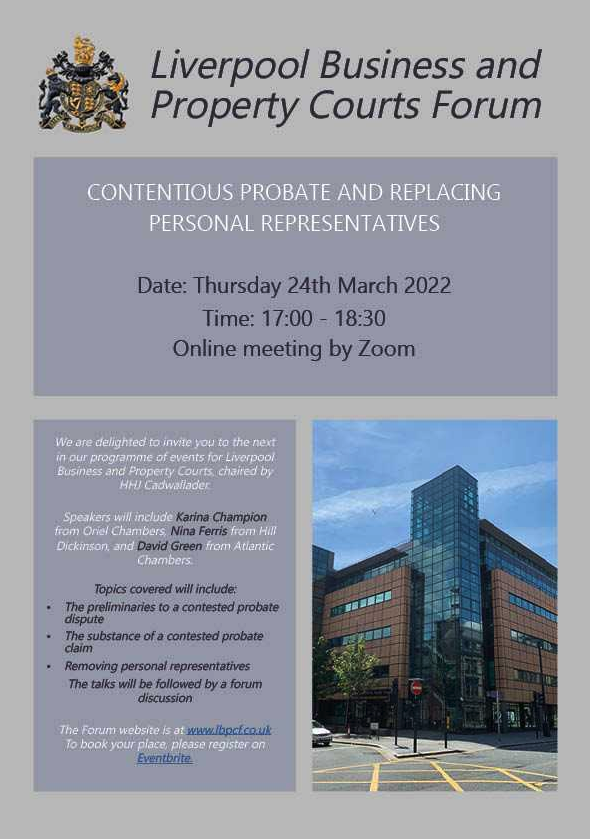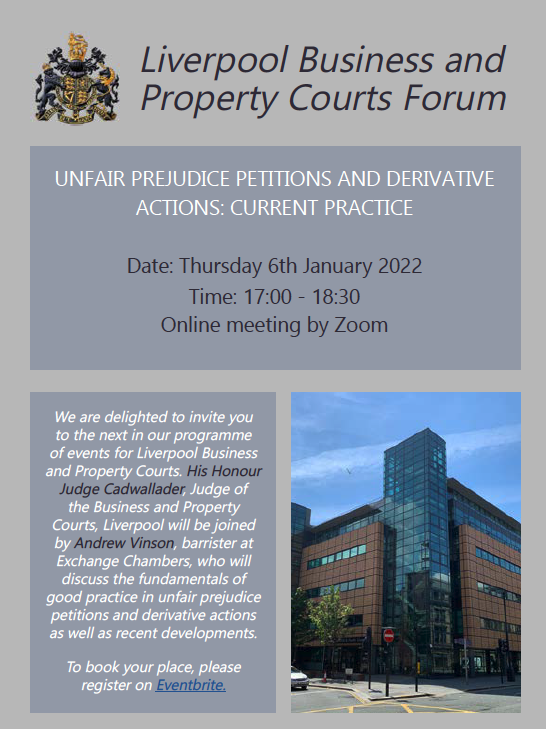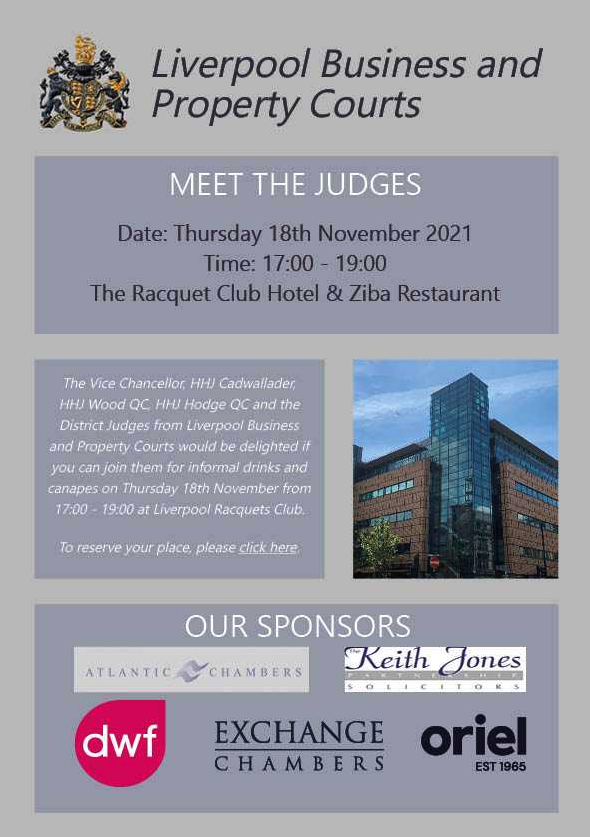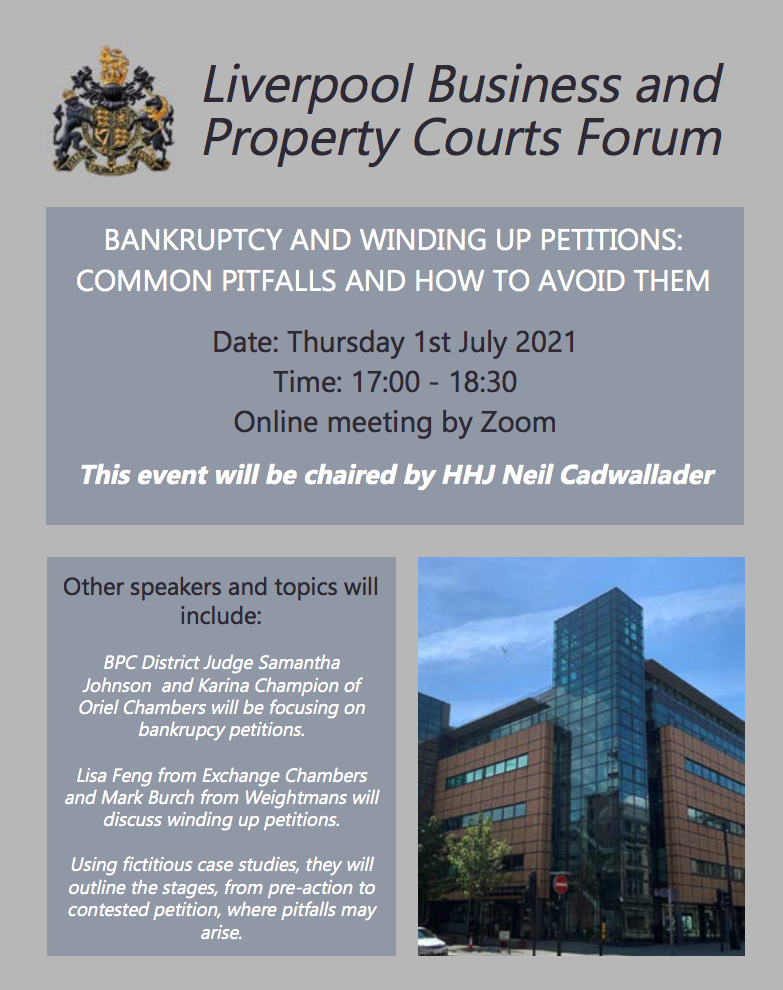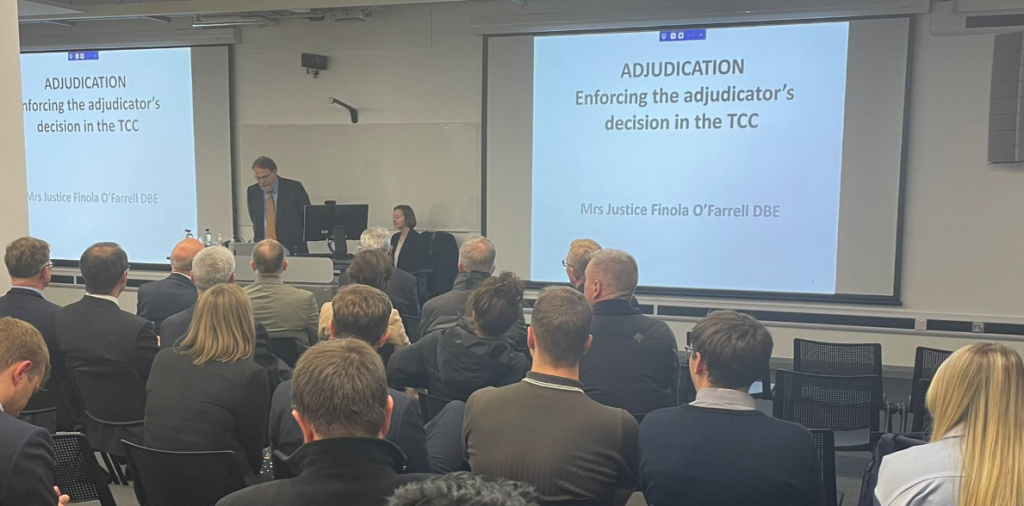
This page contains details of our latest news and events. This is our current calendar of events for 2022 (subject to change):
LIVERPOOL BUSINESS & PROPERTY COURT FORUM – Programme of events for 2024
The full calendar of events for 2024 is being planned and will be confirmed in the coming weeks.
2024 Calendar
18th April 2024 – ‘Recent Changes to Landlord and Tenant Law in Wales: A comparison with the existing regime in England’. Alex Williams and Harry East (Oriel Chambers) (Remote session). Sign up details to follow shortly.
25th June 2024 – ‘Company Law Reforms and the Director Information Hub’ – Save the date! With Dr. John Tribe (University of Liverpool), Jag Saroe (Insolvency Service), Justin Dione (Insolvency Service) and Graham Sellers (Exchange Chambers). Venue: Hybrid: TBC
8th October 2024 – “Inheritance (Provision for Family and Dependents) Act 1975 and contentious probate update” David Green and Jac Armstrong (Atlantic Chambers). Venue: Hybrid TBC.
27th November 2024 – Liverpool Business and Property Court Form – Annual Social Event, jointly hosted with His Honour Judge Cadwallader and Mr Justice Fancourt, Vice-Chancellor of the County Palatine of Lancaster – Venue TBC.
NEXT EVENT
25th June 2024 – ‘Company Law Reforms and the Director Information Hub’ – Save the date! With Dr. John Tribe (University of Liverpool), Jag Saroe (Insolvency Service), Justin Dione (Insolvency Service) and Graham Sellers (Exchange Chambers). Venue: Hybrid: TBC
PAST EVENTS
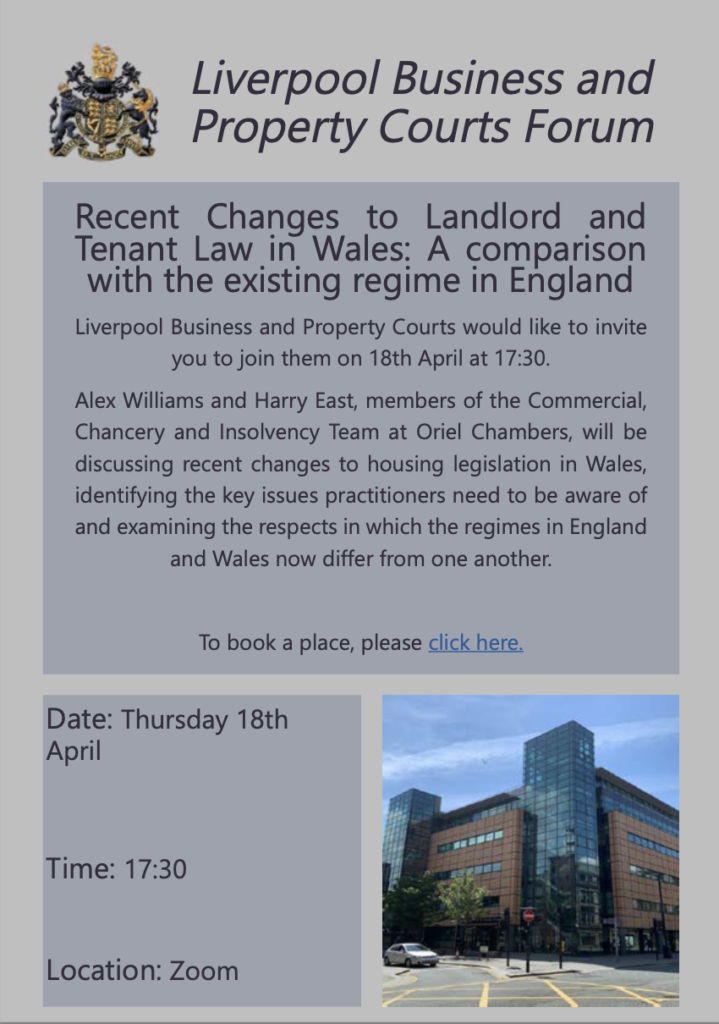
MARCH 2024
UK Supreme Court Justice Lord Burrows will deliver a keynote lecture as part of the anniversary celebrations of 130 years of Law at the University of Liverpool.
Title of Lecture: ‘Precedent and Overruling in the UK Supreme Court’
Speaker: Lord Burrows – Justice of the Supreme Court of the United Kingdom
Date: Monday 18th March 2024
Time: 5.30 – 6.30pm (followed by drinks a reception in the Victoria Gallery & Museum atrium)
Venue: Leggate Lecture Theatre, Victoria Gallery & Museum, University of Liverpool
Booking: https://www.ticketsource.co.uk/school-of-law-and-social-justice-university-of-liverpool/t-qjxopkp
Biography
Justice of the Supreme Court, The Right Hon Lord Burrows
Andrew Stephen Burrows became a Justice of the Supreme Court in June 2020.
He was educated at Prescot Grammar School, Knowsley, Merseyside and Brasenose College, Oxford. He has been a barrister at Fountain Court Chambers since 1989.
He was appointed QC (hon) in 2003 and is an Honorary Bencher of the Middle Temple. He has been sitting as a part-time judge for over 20 years, first as a Recorder and then as a Deputy High Court Judge.
He was a Law Commissioner for England and Wales (1994-1999) and the President of the Society of Legal Scholars (2015-16). He was elected a Fellow of the British Academy in 2007 and has written many books and articles especially on contract, tort, unjust enrichment, and statute law.
He was formerly Professor of the Law of England at the University of Oxford and a Fellow of All Souls College.
